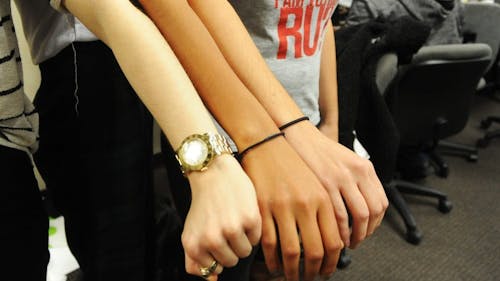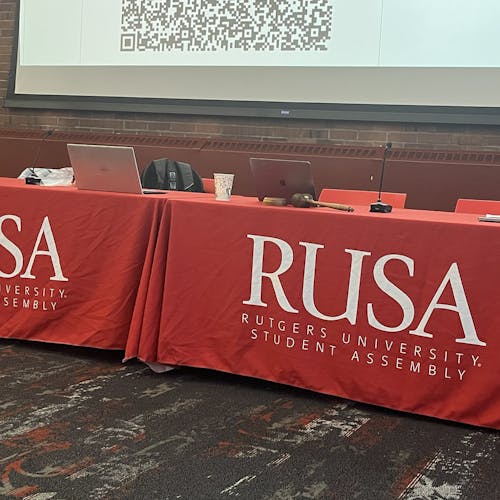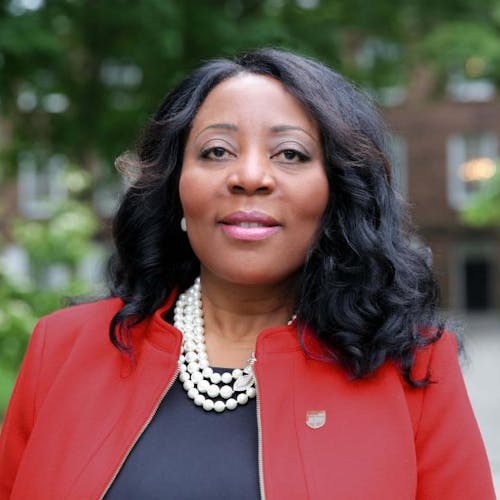Rutgers pledges additional $10 million to diversity hiring programs

At Rutgers’ 250th commencement ceremony, President Barack Obama said "America converges here," noting that the University had a diverse student body with experiences from around the world.
Rutgers prides itself on diversity, with nearly half of its undergraduate students being of black, Latino, Asian, and other minority groups. But according to the Fall 2016 Humanities Task Force report, Rutgers ranks 8th in faculty diversity among its fellow members of the Council of Independent Colleges.
A year ago, University President Robert Barchi pledged roughly $10 million to different programs on top of nearly $22 million already pledged which focus on diversifying Rutgers' faculty.
Deepa Kumar, vice president of the faculty union and the head of University efforts to enhance faculty diversity, said racial diversity among faculty is necessary in order to progress and set a precedent as to what “race” means in today's society.
"When our diverse student body fails to encounter people who look like them among the faculty it sends an unconscious message that there is no place for people of color in the academy," she said.
The Race Connection, a research project conducted by Dean of Faculty Affairs at Stanford University Thomas S. Dee, found that students generally learn more effectively from people who resemble them physically.
His report said “among black children, the results indicate that having a black teacher for a year was associated with a statistically significant 3 to 5 percentile-point increase in math scores.”
The same results reflected on reading scores.
Kumar said she is concerned about the millions of dollars pledged to diversity by Barchi, beginning by mentioning there is no clear mechanism for departments to access the money.
Barchi redefined the term diversity to include anyone with personal or professional characteristics that are either unrepresented or underrepresented in the particular department or unit of intended hire, Kumar said.
“This is deeply problematic. In my department, we could hire Donald Trump and because we don't have a person who has racist, misogynistic, nativist and fascistic views, this could be considered a diversity hire," she said. "This completely defeats the whole point of undoing institutional barriers that prevent qualified faculty of color from being hired at universities."
Once Rutgers hires minority professors, they do little to retain them, Kumar said. Recently, she sent an email to faculty regarding these issues and plans to fix them.
“We need to build an environment where equity along lines of gender, race, and ethnicity can be fostered and maintained. This is the only way in which we are going to retain a diverse faculty. The committee is currently developing a survey to assess the current environment and I will be sending that out in the coming months,” she said.
Opal Vialva, a School of Arts and Sciences junior, said those hired should be chosen solely on their ability to do the job, and race should not hold much weight in the hiring process.
“I am completely fine with having non-ethnic professors, as long as I learn is all that matters,” she said.
Opal said Affirmative Action programs are unfair, and people should not be hired to fill a margin. They should be hired because they are the best fit for the job.
Mohammed Ezzeldin, an Egyptian professor of Middle Eastern History, believes having minority professors is beneficial not only for minority students, but for the student population as a whole.
He said this especially applies to students of humanities and social sciences— subjects which Ezzeldin said are under crisis right now.
Ezzeldin said getting different perspectives on certain topics is important, and gives students chances to react differently and think more deeply about their own ideas on the subject of discussion.
Another reason that makes faculty diversity so important is that it fundamentally disrupts and challenges the hierarchy or balance of power within society’s political and cultural structure, he said.
“It is crucial that when you go to the classroom or you go to a lecture that you find someone with different perspectives," Ezzeldin said. "(Someone) from a different culture."
Stephen Weiss is a School of Arts and Sciences sophomore majoring in philosophy. He is a contributing writer with The Daily Targum.



